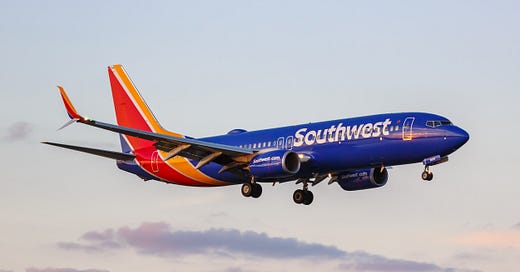Southwest: The death of cabin luggage?
Why are airlines eroding the very fabric that held customers onto their brand?
Roughly 2 days ago, Southwest, one of North America’s largest and most profitable airlines, decided that they were going to end their 2-bag-free policy for good. A standing tradition that, for the past 50 years, had been one of the key reasons that people flew Southwest in the first place. These changes, which have now become a common trend amongst major airlines around the world, suggest a very strong shift in the market, now aimed at enhancing profitability and competitiveness during challenging times. But what does this spell for the future of commercial air travel, and are we destined to fall into ever-increasing prices?
Southwest’s change serves as a warning that even airlines with strong customer-friendly reputations are rethinking their business models in response to financial challenges and shifting consumer preferences. This action may push other airlines to reconsider their baggage policies and additional income schemes, potentially resulting in more price hikes across the board. Additionally, more customers would likely choose to bring carry-on luggage, resulting in packed overhead bins, longer boarding times, and a higher chance of gate-checking of the weight of bags. Thus, this change could prevent hassle-free travel that we all crave, forcing consumers to question their airline selections.
Aside from individual difficulties, this shift in airline attitude would have a bigger impact on airport operations. Longer boarding and deplaning times due to extra carry-on luggage may cause additional aircraft delays, disrupting plans and resulting in missed connections. Airports would also likely experience more congestion at security as more passengers transport large carry-ons through TSA. Furthermore, other airlines would likely follow suit to tighten their baggage regulations, establishing a new industry standard in which free checked bags become a speciality rather than a norm.





